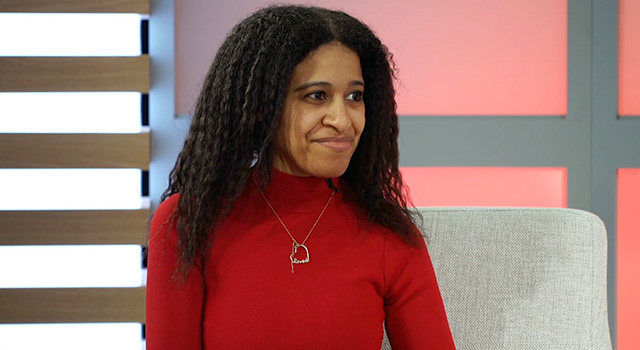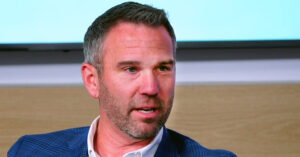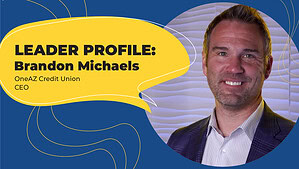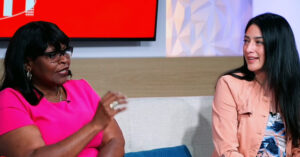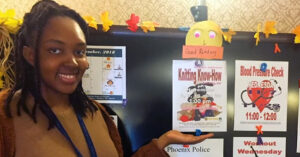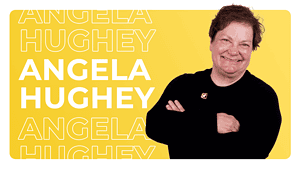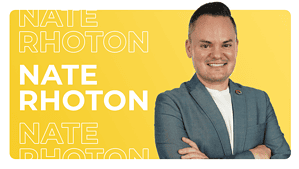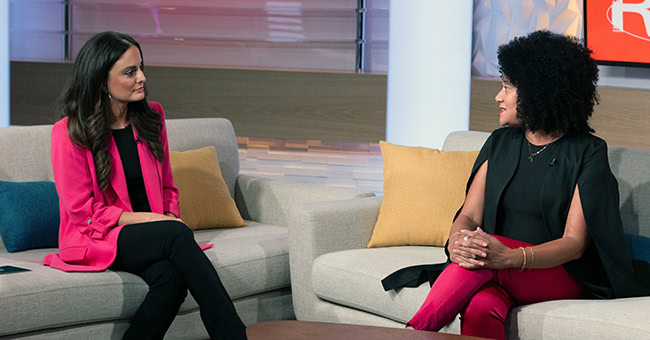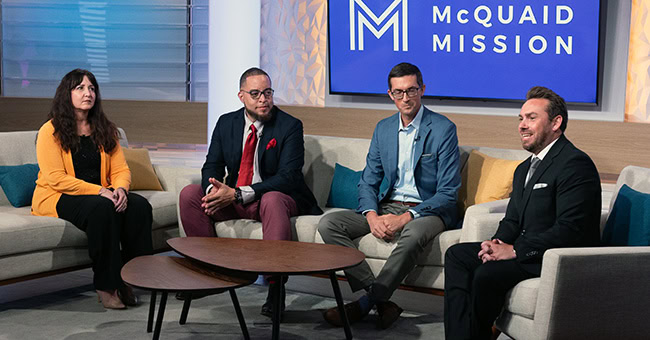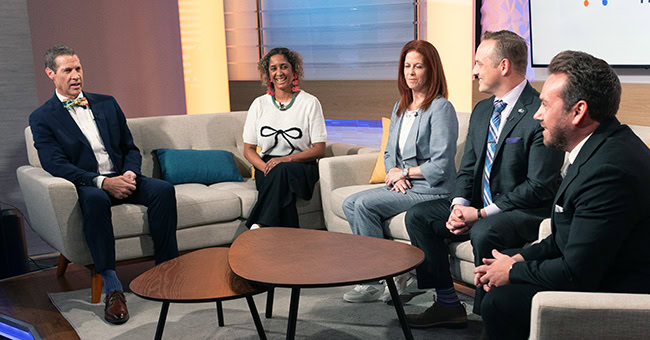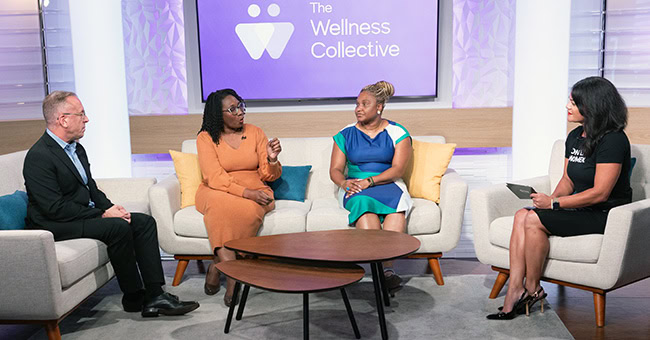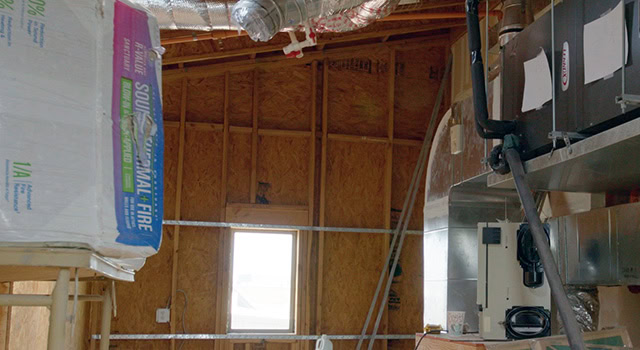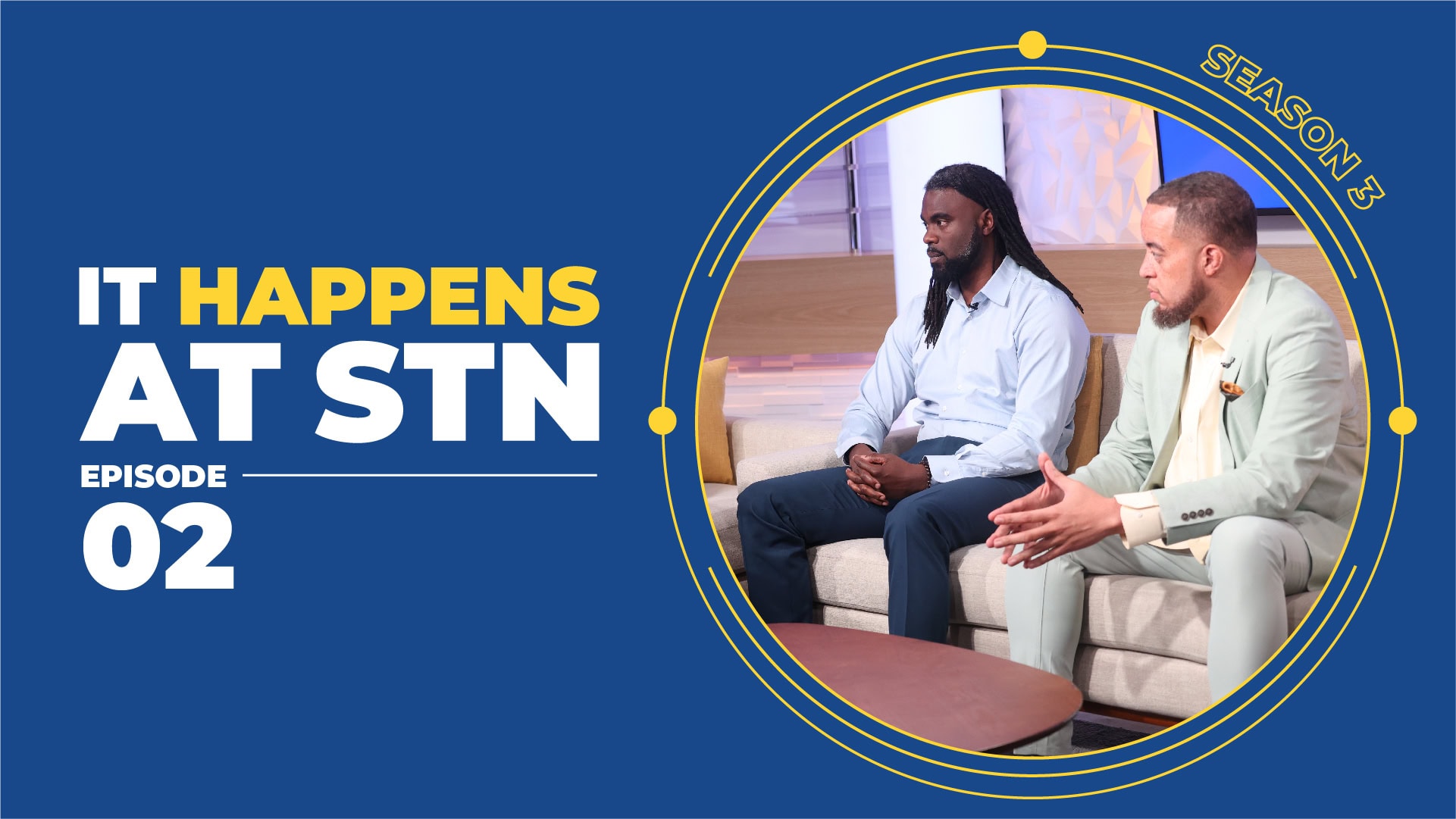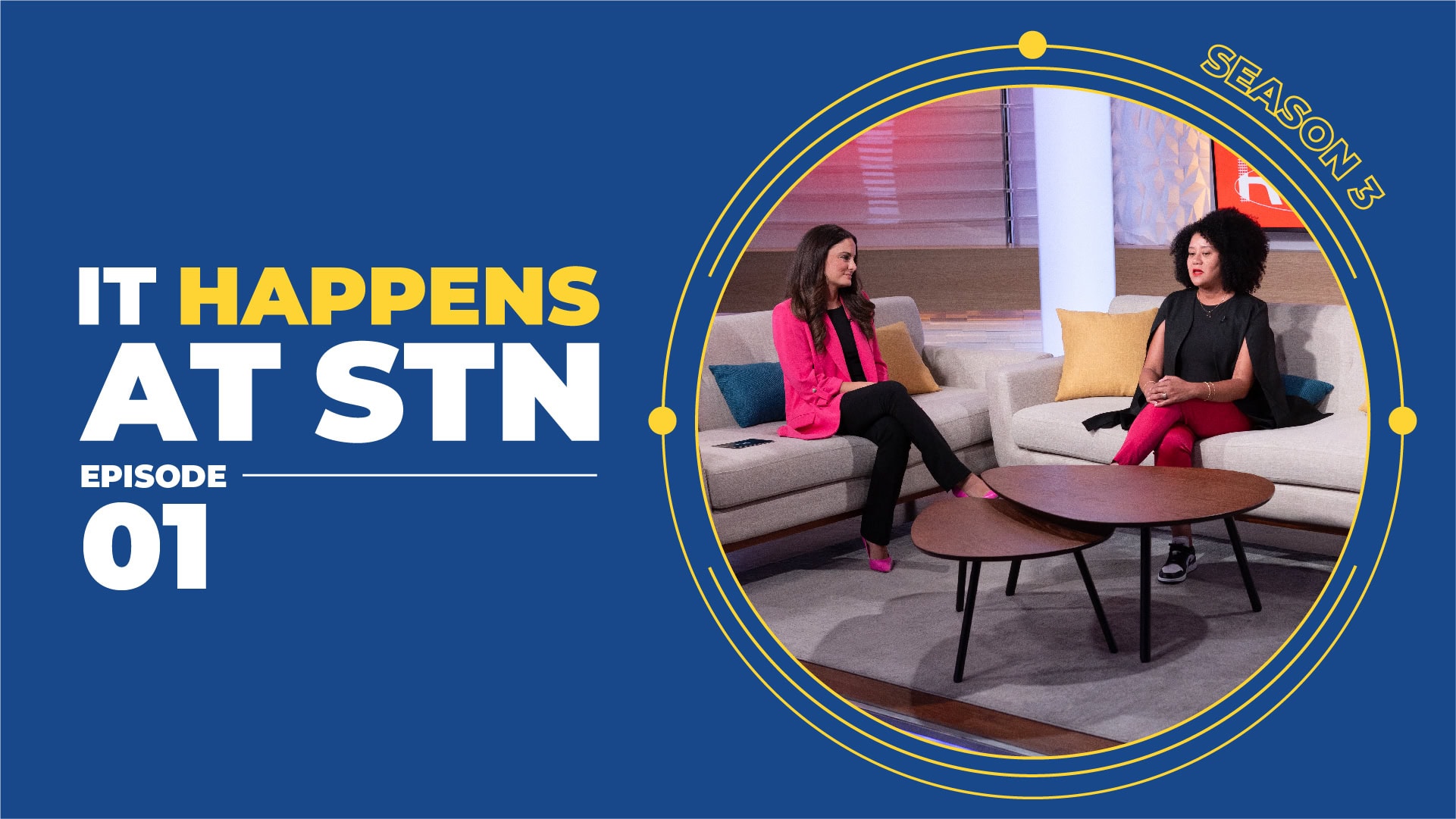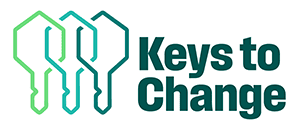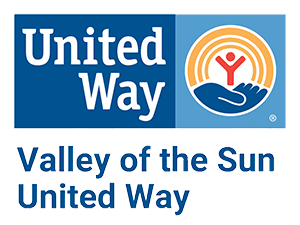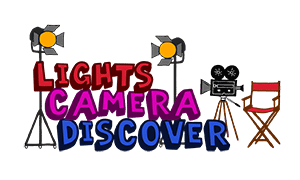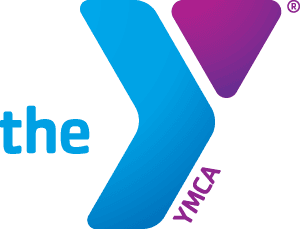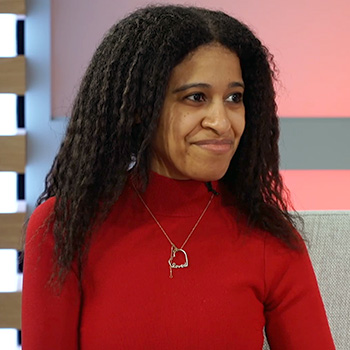
The moment Dr. Rachel Bond was old enough to walk and talk she knew she wanted to be a doctor so she could care for others. Dr. Bond credits the caring and nurturing environment her parents raised her in as one of the biggest factors that contributed to her wanting to practice medicine. The second significant factor was seeing family members pass away prematurely from treatable health conditions.
As a practicing doctor, Dr. Bond learned how our healthcare system was built to put less fortunate communities at a severe disadvantage when it comes to choosing their own healthcare options. She is on a mission to change that by using her diverse background to educate those less fortunate communities on things they can do at home to live healthier more fulfilling lives.
“As it stands, when we talk about cardiologists, I’m only about 13% of females, but then someone like me, who’s a Black female, I make up about 2% of the cardiologist population.”
– Dr. Rachel Bond, MD, Cardiologist
Dr. Rachel Bond, MD, shares why she knew at an early age that she wanted to be a doctor. She also explains how her upbringing and medical training in the ultra-diverse New York City area helped her become a better more compassionate provider for her patients.
This article has been edited from the original interview for content, length and clarity.
STN:
What made you decide to be a doctor? Was it something that was always in you, or did you have a calling to get into the field?
Dr. Rachel Bond, MD:
I get this question a lot. What I like to tell people is that from the moment that I was able to speak, I knew that I wanted to be a physician. I have a very supportive, caring, and empathetic family so a lot of my wanting to be a doctor came from my upbringing, and having a strong support system at home.
Another reason I wanted to get into the medical field was that I saw many of my family members dying prematurely from preventable chronic health issues. It is the reason I chose to go into cardiology. Heart disease is the leading cause of death among men and women in the US. We know that certain segments of our population are at a higher risk of getting the disease. I wanted to do my part to make sure that I was helping people prevent the disease from happening at all. That is why I have focused a big part of my career on preventive cardiology.
STN:
Like most of us you are not a native Arizonan, you came to the desert from New York City.
Did being in a place like NYC with such a diverse population help steer you towards caring for those diverse and underserved patients?
Dr. Bond:
Absolutely, even with my own family. I am biracial. I identify as a Black female, and as I mentioned before I have had family members pass away prematurely from preventable conditions, which of course had more to do with the social constructs of our healthcare system.
I will say though because I came from a city like the Bronx and New York City where I did all my training, most of my patients were similarly diverse and many of them looked like me. It made it much easier to build relationships with them and learn how to be empathetic for these patients when they are trying to navigate our complex healthcare system.
I do think that my background has given me the opportunity to care for my patients a lot better than someone that does not have as diverse of a background as I do, but I also think that it is valuable to have different people from different backgrounds working together because we can learn from each other. My colleagues and I are impacted in a positive way by learning how to navigate different patients with different backgrounds.
STN:
I’m sure you have patients or even fellow doctors that come in and think, “Wow, she’s young,” and it’s not often that we see a Black female cardiologist. How often do you see other physicians that look like you in your field, and do you feel like you face different challenges being young, and also being a Black woman?
Dr. Bond:
That is a great question. Something that I think is important for me to highlight is in medicine in general, there is such a significant reduction in the number of people that are going into my particular field that look like me. Unfortunately, as it stands, when we talk about cardiologists, I’m only about 13% of females, but then someone like me, who’s a Black female, I make up about 2% of the cardiologist population.
I’m working with a lot of the national cardiovascular societies to try to change those statistics. One way to do that is to show my face, to say that this is actually the true face of cardiology.
You bring up another valuable point, which is that there is ageism. I think it has been a litter harder for me because sometimes people think I am too young to be in the position that I am in. People think that if you are young you must not have the experience to be where you are, and particularly for us as Black women, we have to stay true to ourselves and know that we are just as well educated and as qualified as anyone else to be in the positions that we are in today. For me, the proof is in the care that I provide to my patients every day.
I mentor as many younger doctors as I can. I want to be a role model for them so that they can see you can be young, you can be female and you can be a person of color and still achieve all of the goals you have set for yourself, but you have to remain determined. I have been lucky to have a great support system of mentors that have helped me stay determined and show me that even though you are young your voice matters, and that is the biggest thing I try to convey to my mentees.
STN:
Another staggering statistic that is out there is the maternal death rates for Black women in this country over the past 10 years it has increased 140%, which is shocking. It almost doesn’t seem believable. You have really become a trailer blazer when it comes to the topic of women’s maternal cardiovascular health. What lead you to become so passionate about this particular topic in cardiovascular health?
Dr. Bond
We are in the United States, the only industrialized country in the world that has the highest rates of maternal deaths and about 80% of these deaths are preventable. Black women are dying at three times the rate of their white female counterparts. Cardiovascular disease is the leading cause of death during pregnancy as well as the immediate period postpartum.
As a cardiologist, I play a big role with my patients even before their pregnancy to help them optimize their health. I also play a big role in the post-delivery and in postpartum, many of the conditions that can occur during pregnancy such as gestational diabetes and elevated blood pressure can independently lead to future cardiovascular risks up to 20 years after the woman has had their child.
I am trying to educate my colleagues so they know that pregnancy is a window into a woman’s future health. Unfortunately, it is also a stress test that many women fail. The good news is that it is largely preventable if we get them into the hands of doctors that know how to care for women dealing with high-risk issues during and after their pregnancy.
I think it is so important to get the messaging out there, especially when it comes to the racial and ethnic disparities that exist within our healthcare system; we need to target those populations that need the care the most.
STN:
Some people may read this and say, “Well, because you are Black you are predisposed to have these kinds of medical issues, not because of any systemic or social factors, that it is truly because of biology.” Is that at all accurate, or it is a myth?
Dr. Bond:
That is a myth. We know our genetics don’t equate to the outcomes that we see from a healthcare standpoint. We know that what dictates our health is our zip code. We know one big social determinant of health care is where people are born, where they grew up, where they live, play, and pray, those are the factors that dictate 80% of our health outcomes.
A second big social determinant of healthcare is the psychosocial stressors that many communities of color experience, this can have a huge effect on the cardiovascular and maternal health of many patients. When you break it down to the historical context of what is going on, our healthcare system was built to put communities of color at a severe disadvantage.
This is where I think education becomes crucial. As clinicians we have to be very careful when we are having these very sensitive conversations with our patients. We have to look at all of their risk factors, but we also have to take into consideration those psychosocial stressors as risk factors of their own and work with our patients to figure out the best way to manage it.
STN:
It is such and important issue that is not talked about, thank you for taking the lead on educating your colleagues and the public on this.
As we wrap up, if you can use one word to describe yourself, what would it be?
Dr. Bond:
I would probably say genuine. My family, my friends, they all know that I’m very true, I wear my heart on my sleeve. I also try to convey that to my patients when we are having those difficult conversations about their health. I want them to know that I am going to be there for them and I am going to help them through whatever they are dealing with.
For me, it is all about staying true to myself, going back to that little girl in the Bronx who really wanted to be a doctor, eventually she became the first medical doctor in her family, and now today I try to make sure I don’t change the core of who I am. I think that that’s really allowed me to move forward in my life, and I encourage everyone to stay genuine and stay true to themselves.


